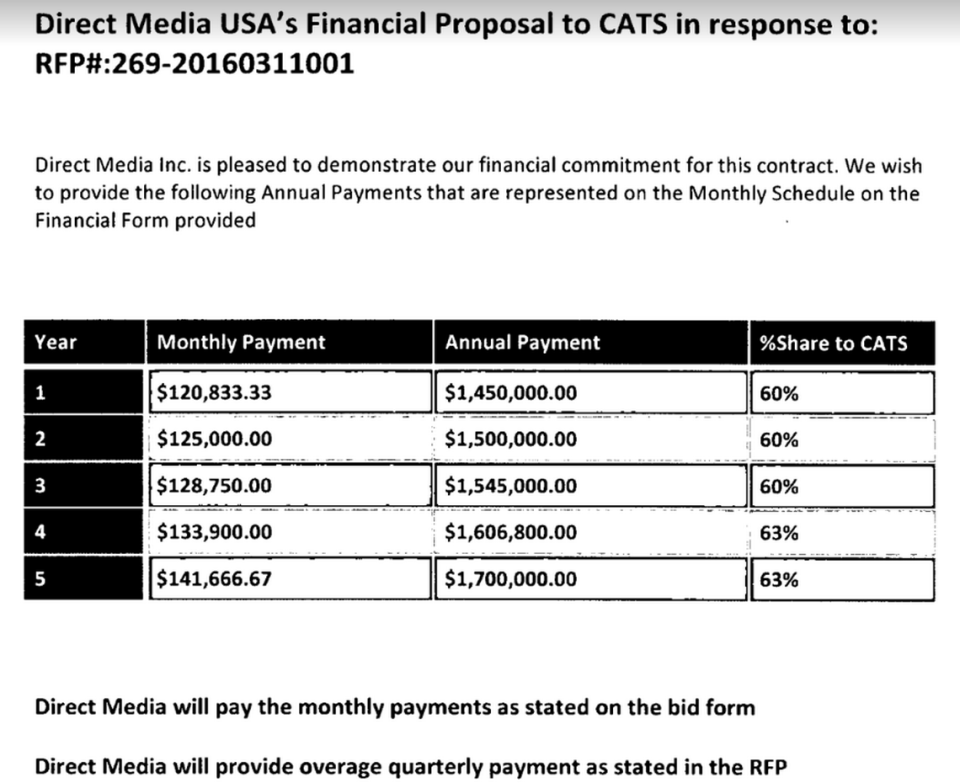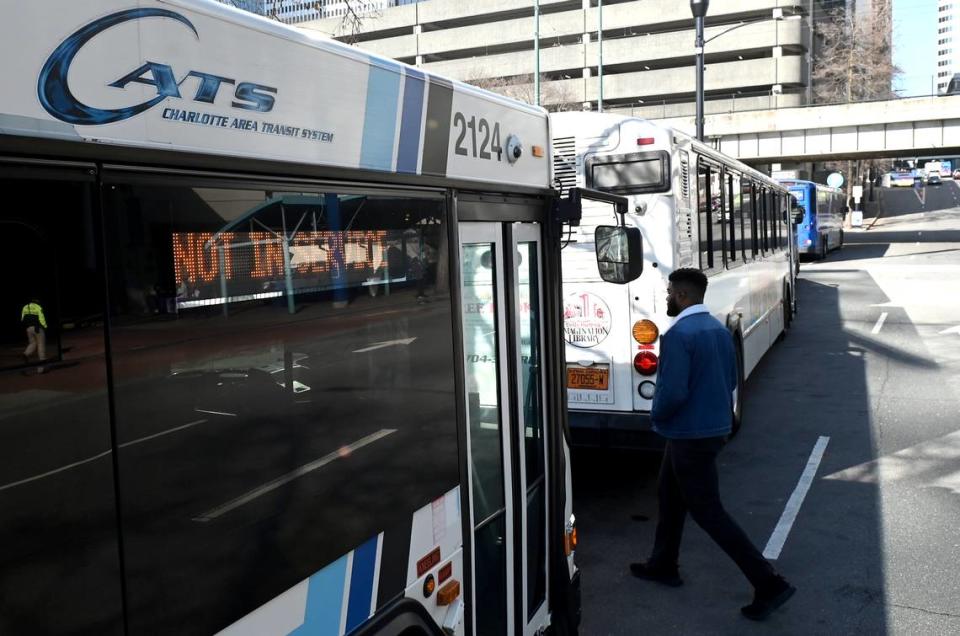Ad company didn’t pay up for months, Charlotte says. Now, lawsuit wants over $1.5 million
The city of Charlotte is suing a company hired to sell ads on buses and trains for more than $1.5 million in unpaid money, according to a lawsuit filed last month.
Delaware-based Vector Media Holding didn’t pay the city for four months of bus and light rail advertisements in 2020 because of pandemic-related pressures, the city attorney’s office says in the suit. In August 2020, the company started paying the city again, but “at arbitrarily reduced amounts,” the suit says.
In January 2022, payments from the company stopped again — something the city says is an unfair negotiating tactic by Vector over “outstanding underpayments.”
The city wants a jury trial and at least $1.52 million. The total includes $539,966 from April 2020 to July 2021 and another $980,737 from last year.
“The issues stem from the pandemic period and the significant reduction in (Charlotte Area Transit System) service,” a Vector media representative said in an emailed statement. “We have been trying to work with the city to come to a fair resolution to this matter, and we are hopeful that the matter can be resolved quickly and out of court.”
As ridership declined 41% at the beginning of the pandemic, CATS made rides free for passengers but significantly reduced service. The Vector representative said they couldn’t comment further when asked how COVID affected its income from ad sales.

Former CATS CEO John Lewis led the agency during the contract period and told The Charlotte Observer he wasn’t surprised the lawsuit made its way to federal court. CATS found the issues with Vector after an internal audit, he said, leading the transit agency to cancel the program and take on ad sales itself.
The city’s contract with Vector required it to provide all advertising contracts to the city, something Lewis said the company made difficult. Lewis resigned from the agency in November over issues unrelated to the advertising.
CATS has faced a myriad of issues in recent years, but the federal lawsuit was filed after a particularly difficult two months for the transit agency. News of a Blue Line light rail train derailment in May 2022 due to delayed maintenance, missed bridge inspections and being behind on parts replacements for the bus fleet have come to the public’s attention since March. Those are joined by staffing issues that led to bus service cuts last summer.
Timeline with company, payments
The city’s timeline of events from the lawsuit is as follows.
April 2016: Direct Media was one of five companies that submitted a bid for the management of CATS transit advertising. Vector acquired Direct Media in 2017.
August 2016: The city of Charlotte chose the company partly because of its revenue model’s strength, according to the suit.
The role of Direct Media, soon to be Vector Media, included selling advertisements for the following:
▪ Exterior and interior ads on any vehicles that generated revenue
▪ Ads on printed schedules
▪ Ads on tickets for the light-rail system
▪ Rail platform signs
▪ Concessions on platforms
▪ CATS Parking decks and other facility assets
▪ Naming rights and sponsorship

November 2017: Vector officially acquired Direct Media.
June 2019: Vector extended the contract with the city by one year.
April-July 2020: For 44 months, Vector made all minimum monthly payments — until COVID-19 began to spread. Vector made no payments in April, May, June or July 2020, according to the suit.
August 2020: Vector resumed paying the city, but at a lower cost. Vector paid the city about $2.7 million, about a half-million less than the $3.3 million city attorneys said Vector owed Charlotte.
The city claims Vector still owes it $539,966.79 from advertisement contracts from April 2020 to July 2021.
August 2021: The contract expired, but both Vector and the city agreed on “carry over advertisements,” which means certain Vector ads could remain on city infrastructure. The city would receive 60% of the ad revenue and Vector would receive 40%.
January-July 2022: Vector stopped paying the city, “despite continuing to receive revenue,” the suit says. Vector still owed about $980,000 in revenue from January to July 2022.
“Not only were we not getting our share. They were taking 100% of the revenue,” Lewis said.
August 2022: CATS began operating advertising in house and has collected revenue this way ever since.
August 2022 to February 2023: Vector paid about $625,000 in total of of the almost $1 million still owed to the city.

